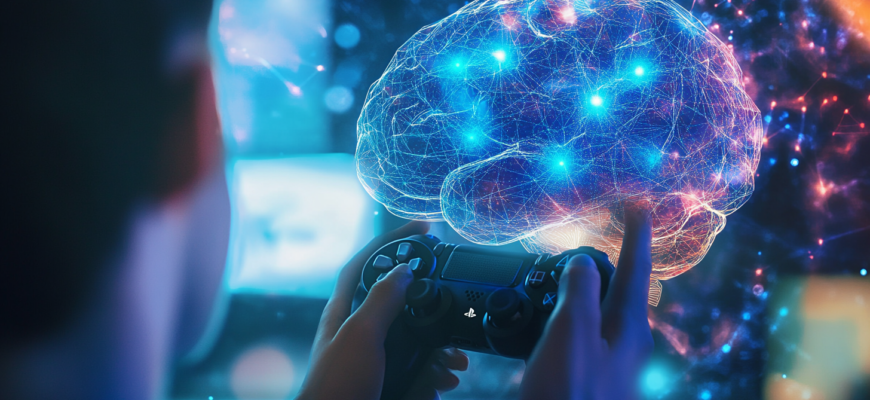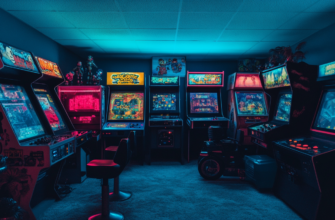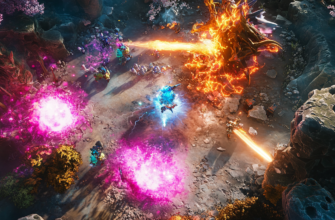- Understanding how gaming psychology can influence behavior
- Key psychological concepts to understand
- Step-by-step guide: How video games influence your behavior
- Practical tips to enhance the positive effects of games on behavior
- Common questions about gaming and behavior
- Conclusion: Be mindful of how games shape your mind
Understanding how gaming psychology can influence behavior
Yo, fellow gamer! Have you ever finished a gaming session and felt like carrying that intense, competitive vibe into the real world? Or, after hours of peaceful exploration in an open-world game, do you catch yourself feeling surprisingly calm? If the answer is a resounding “yes,” you’re not alone. In fact, gaming and psychology are deeply intertwined, affecting our behavior in fascinating ways.
In this article, we’re digging into how gameplay affects our behavior through psychology. I’ll discuss key psychological concepts and detail how different types of games can have various behavioral impacts. While some games can improve your cognitive abilities, others might stir up emotions that influence your interactions in real life. Let’s dive into this knowledge and become more aware of what gaming does to us mentally and behaviorally!
Key psychological concepts to understand
Before we get into the nitty-gritty of how games affect behavior, let’s quickly cover a few essential psychology terms that will pop up in this discussion:
- Reinforcement: In psychology, reinforcement is the idea that certain actions are either rewarded (positive reinforcement) or punished (negative reinforcement), leading to an increase or decrease in that behavior over time.
- Dopamine: This chemical is a major player in the brain’s reward system. Games reward players in ways that trigger dopamine release, often motivating us to keep playing.
- Cognitive skills: These are the brain-based skills we need to execute everyday tasks—problem-solving, memory, focus, etc.
- Flow state: This is the sweet spot when you’re fully immersed in a task, whether you’re gaming, working, or even working out. You lose track of time because you’re so focused.
- Social learning theory: The theory in psychology stating that people learn behaviors, values, and attitudes through observation, imitation, and modeling, especially in social contexts.
With those concepts in mind, let’s dive into how playing video games can change your behavior.
Step-by-step guide: How video games influence your behavior
- Recognize the type of game you’re playing
- Understand the emotional triggers
- Identify reinforcement cycles
- Monitor your aggression levels
- Appreciate social interactions in multiplayer games
Not all games have the same psychological effects. Competitive multiplayer titles might leave you feeling tense, while puzzle games could stimulate your brain in more positive ways. Identifying what kind of game you’re playing is the first step toward understanding its impact on your behavior. If you mainly play first-person shooters, get ready for some adrenaline, and if you’re grinding in an RPG, learning and problem-solving are likely at play.
Games are designed to make you feel something, whether it’s victory, frustration, relief, or excitement. These emotions don’t just turn off when you leave the game. For example, high-pressure games like “League of Legends” often cause frustration because of the competitive environment, which may lead to unintended real-life consequences. Awareness of this emotional carryover is a game-changer—you can manage and balance your emotions better once you understand what’s triggering them.
Some games keep you hooked by carefully balancing rewards, be it character progression, new skins, or even trophies. Understanding how you are being rewarded while playing—whether through in-game currency or leveling up—is crucial. It’s all about those dopamine hits! The next time you’re grinding for a better sword or camping out for the perfect shot in “Fortnite,” know that these activities are shifting your brain’s reward pathways, which can potentially affect your behavior outside the game.
Intense and violent video games have been a topic of debate for a while. Does playing “Call of Duty” make you more aggressive in real life? While the link between violent games and real-world aggression isn’t a direct cause-and-effect situation, frustration and competitiveness can spill over if they’re left unchecked. If you notice yourself getting angry or hostile more often after a session, especially after a tough loss, it’s important to figure out where these feelings are coming from.
Whether you’re teaming up in “VALORANT” or jumping into a raid in “World of Warcraft,” multiplayer games offer a ton of social interaction. But how is this changing your behavior? Games are a prime example of social learning—teammates learn from your actions, just as you learn from theirs. Consider how you cooperate, communicate, and resolve conflicts during gameplay. Are those skills helping you in other parts of life, like at work or in school? They very well might be.
Practical tips to enhance the positive effects of games on behavior
Alright, now that you’ve got an idea of how games can impact behavior, here are a few key tips to shape and enhance your gaming experience:
- Know your limits. Whether it’s time spent playing, or how certain games make you feel, setting boundaries is super important. If you tend to get stressed out after a few rounds of ranked play, take a break and switch to something lighter, like a single-player story-driven game.
- Balance violent games with calming experiences. Mixing it up between intense shooters and calming simulation games like “Stardew Valley” or “Minecraft” can provide balance. Instead of logging off after a heated session of “Counter-Strike,” try winding down with a game that promotes relaxation.
- Utilize gaming for personal growth. Many games, especially strategy and puzzle-based ones, can improve brainpower by enhancing critical thinking, memory, and focus. To get the most out of it, opt for titles that challenge you mentally, like “Civilization VI” or “Portal 2.”
- Keep an eye on multiplayer behavior. If you’re diving into multiplayer, take a moment to reflect on how you behave in social gaming environments. Are you the calm, cooperative type, or do you flame your teammates after a bad round? Positive communication can make your gaming experience, and your social experiences, all the better.
- Use gaming as a way to destress or achieve flow state. Wisely chosen games can help you achieve a ‘flow state,’ which is incredibly beneficial for mental health. These games don’t always have to be easy, but they should hit a balance between challenge and fun. Often, action RPGs or immersive single-player titles are great for this.
Common questions about gaming and behavior
Let’s address a few common questions that come up when talking about gaming’s psychological effects:
Do games make people more violent?
Studies have shown mixed results, with no direct evidence that games alone lead to real-world violence. However, games with intense combat or emotionally taxing narratives can evoke temporary aggressive feelings, especially if you’re already tired or stressed.
Can games improve my cognitive abilities?
Absolutely! Certain games, particularly puzzles (like “The Witness”) and strategy games (like “XCOM”), can enhance problem-solving, memory, and strategic thinking. Some research even suggests that older folks who game experience slower cognitive decline.
Is it bad to spend too much time gaming?
It’s all about balance, bro. Like anything else, gaming is healthiest when balanced with other aspects of life such as socializing, exercise, and sleep. Make sure to monitor how much time you’re spending and how it’s affecting your daily life outside of gaming.
Conclusion: Be mindful of how games shape your mind
So, there you have it! While gaming is an awesome hobby (and sometimes even a profession!), it’s essential to be mindful of its impact on your psychology and behavior. Games can make you smarter, more strategic, and even more socially skilled, but they can also stir up unwanted emotions if you’re not careful. By being aware of what’s happening in your brain and managing how different types of games affect you, you can ensure that your gaming remains a healthy and positive part of your life.
Have you noticed how a particular game has affected your mood or behavior? I’d love to hear your experiences! Drop a comment below, and let’s chat about how we can game smarter, not harder!

















